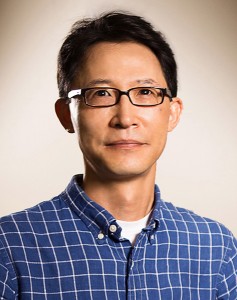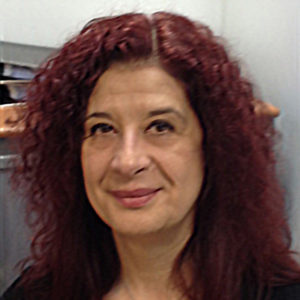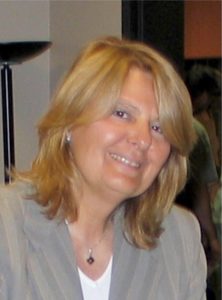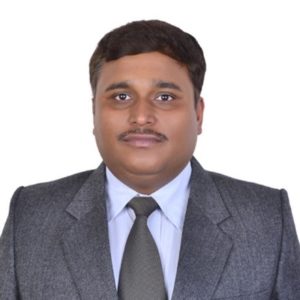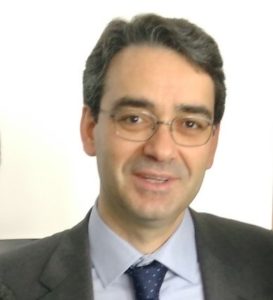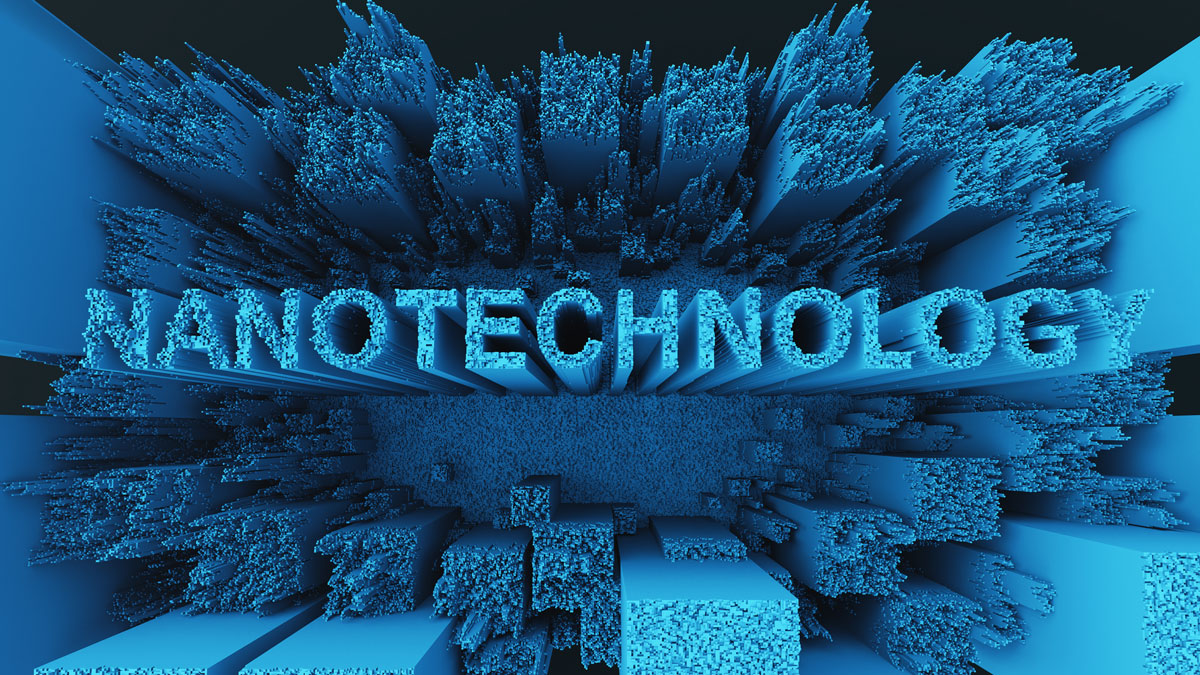The IEEE Nanotechnology Council (NTC) elected new officers at its Annual Administrative Committee Meeting held in Mallorca, Spain, on 5 July 2022.
Representatives of the twenty-two IEEE Societies who are Council members gather annually to conduct Council business and elect officers. This year saw the introduction of Vice-president-elects and Members-at -Large. The positions up for election were: President-elect (one year term, 2023); VP for Conferences and VP for Finances (2 years, 2023-2024); VP-elect for Educational Activities, VP-elect for Publications and VP-elect for Technical Activities (3-years: elect 2023; VP 2024-2025) and Member-at-Large (MAL) (up to 3) (2023-2024).
Jin-Woo Kim, University of Arkansas was elected President-elect 2023 (President 2024-25). Kremena Makasheva, French National Center for Scientific Research (CNRS), Laboratory on Plasma and Conversion of Energy (LAPLACE), Toulouse, France was elected VP Conferences and Malgorzata Chrzanowska-Jeske, Portland State University, Oregon was re-elected VP Finances.
Luca Pierantoni, Università Politecnica delle Marche (UnivPM), Ancona, Italy was elected VP-elect Educational Activities; Georgios Ch. Sirakoulis, Democritus University of Thrace (DUTH), Greece, was elected VP-elect Publications and Weiqiang Liu, Nanjing University of Aeronautics and Astronautics (NUAA), Nanjing, China was elected VP-elect Technical Activities.
Antonio di Bartolomeo, University of Salerno, Italy; Brajesh Kumar Kaushik, Indian Institute of Technology, Roorkee and Jie Han, University of Alberta, Canada were elected Members-at -Large 2023-24.
President-elect (2023)
 Jin-Woo Kim is a Director of Bio/Nano Technology Group at the Institute for Nanoscience & Engineering and a Professor of Biological Engineering, Biomedical Engineering, and Materials Science & Engineering at University of Arkansas since July 2001. He was visiting professors at Harvard University, Brookhaven National Laboratory, and Pohang University of Science & Technology (POSTECH) and holds an adjunct professorship at the Department of Electrical Engineering of POSTECH. He was educated at Seoul National University (B.S.’86 in Chemical & Biological Engineering), University of Iowa (B.S.’91 in Microbiology), University of Wisconsin (M.S.’94 in Biology), and Texas A&M University (Ph.D.’98 in Biological Engineering). He served as NTC Vice Presidents for Publications (2017-2019) and for Conferences (2021-2022) as well as organizing committees for several NTCsponsored IEEE conferences, including IEEE-NANO, IEEE-NEMS, and IEEE-NANOMED. He is a fellow of IEEE and AIMBE, an NTC Nanotechnology Distinguished Lecturer (2017-2018), and an Editor-in-Chief of IEEE Open Journal of Nanotechnology.
Jin-Woo Kim is a Director of Bio/Nano Technology Group at the Institute for Nanoscience & Engineering and a Professor of Biological Engineering, Biomedical Engineering, and Materials Science & Engineering at University of Arkansas since July 2001. He was visiting professors at Harvard University, Brookhaven National Laboratory, and Pohang University of Science & Technology (POSTECH) and holds an adjunct professorship at the Department of Electrical Engineering of POSTECH. He was educated at Seoul National University (B.S.’86 in Chemical & Biological Engineering), University of Iowa (B.S.’91 in Microbiology), University of Wisconsin (M.S.’94 in Biology), and Texas A&M University (Ph.D.’98 in Biological Engineering). He served as NTC Vice Presidents for Publications (2017-2019) and for Conferences (2021-2022) as well as organizing committees for several NTCsponsored IEEE conferences, including IEEE-NANO, IEEE-NEMS, and IEEE-NANOMED. He is a fellow of IEEE and AIMBE, an NTC Nanotechnology Distinguished Lecturer (2017-2018), and an Editor-in-Chief of IEEE Open Journal of Nanotechnology.
VP for Conferences (2023-24)
 Kremena Makasheva, is Senior Researcher at the French National Center for Scientific Research (CNRS), Laboratory on Plasma and Conversion of Energy (LAPLACE), Toulouse, France. Dr. Makasheva earned a Ph.D. degree on Plasma Physics from Sofia University, Bulgaria, 2002, for her work on Surface Wave Sustained Discharges. After a 4 year stay in the Groupe de physique des plasmas at Université de Montréal, Québec, Canada she moved in 2007 to Toulouse, France to work in LAPLACE. Since 2009 she works on plasma deposition of nanostructures. Multifunctionality of silver nanoparticles (AgNPs) is in the heart of her research. In 2015 she and her colleagues proposed AgNPs-based blocking nanocomposite layer to control charge injection and transport in thin dielectrics. Her research activities are directed to study of reactive plasmas, design and study of plasma deposited nanostructured dielectric materials containing AgNPs for biomedical, optical, electrical engineering and space applications. She is the author and co-author of over 100 publications in international journals and conferences.
Kremena Makasheva, is Senior Researcher at the French National Center for Scientific Research (CNRS), Laboratory on Plasma and Conversion of Energy (LAPLACE), Toulouse, France. Dr. Makasheva earned a Ph.D. degree on Plasma Physics from Sofia University, Bulgaria, 2002, for her work on Surface Wave Sustained Discharges. After a 4 year stay in the Groupe de physique des plasmas at Université de Montréal, Québec, Canada she moved in 2007 to Toulouse, France to work in LAPLACE. Since 2009 she works on plasma deposition of nanostructures. Multifunctionality of silver nanoparticles (AgNPs) is in the heart of her research. In 2015 she and her colleagues proposed AgNPs-based blocking nanocomposite layer to control charge injection and transport in thin dielectrics. Her research activities are directed to study of reactive plasmas, design and study of plasma deposited nanostructured dielectric materials containing AgNPs for biomedical, optical, electrical engineering and space applications. She is the author and co-author of over 100 publications in international journals and conferences.
Her principal Nanotechnology Council activities include: Vice-President for Technical Activities (VP TA) and Chair of the NTC Technical Activity Committee (2020-2021), Member of the NTC Conference Committee (2021-onward), Program Chair of the 20th IEEE International Conference on Nanotechnology (IEEE NANO 20202 – virtual), General Chair of the 11th IEEE Nanotechnology Materials and Devices Conference (IEEE NMDC 2016) in Toulouse, France and the 16th NMDC, Vancouver, Canada, and Coordinator for the co-located IEEE NMDC and CEIDP (Electrical Insulation and Dielectric Phenomena) conferences in 2021 in Vancouver, Canada.
VP for Finances (2023-24)
 Malgorzata Chrzanowska-Jeske is Professor of ECE and Director of VLSI & Emerging Technology DA Laboratory at Portland State University, where she was ECE Department chair from 2004 to 2010. Previously, she was with the Technical University of Warsaw and the Research and Production Center of Semiconductor Devices. She holds a Ph.D degree in EE from Auburn University. Her research interests include CAD for VLSI and 3DICs, nanotechnology and nano/bio systems, and design for emerging and renewable technologies. She has presented tutorial, keynote, and invited talks at international conferences, published 150+ technical papers, and serves as panelist/reviewer for the National Science Foundation, National Research Council Canada, and international journals and conferences. Her research has been supported by NSF and industry.
Malgorzata Chrzanowska-Jeske is Professor of ECE and Director of VLSI & Emerging Technology DA Laboratory at Portland State University, where she was ECE Department chair from 2004 to 2010. Previously, she was with the Technical University of Warsaw and the Research and Production Center of Semiconductor Devices. She holds a Ph.D degree in EE from Auburn University. Her research interests include CAD for VLSI and 3DICs, nanotechnology and nano/bio systems, and design for emerging and renewable technologies. She has presented tutorial, keynote, and invited talks at international conferences, published 150+ technical papers, and serves as panelist/reviewer for the National Science Foundation, National Research Council Canada, and international journals and conferences. Her research has been supported by NSF and industry.
She received the 1990 Best Paper Award from Alabama Section of IEEE and IEEE CEDA 2008 Donald O. Pederson Best Paper Award in IEEE Transactions on Computer-Aided-Design.
VP-elect for Educational Activities (3-years: elect 2023; VP 2024-2025)
 Luca Pierantoni is Full Professor of Electromagnetic Fields at the Università Politecnica delle Marche (UnivPM), Ancona, Italy. He received (1988) the Laurea Degree (summa cum laude) in Electronic Engineering and the PhD Degree (1993) in Electromagnetics from the University of Ancona, Italy. From 1996 to 1999, he worked at the Technical University of Munich, Germany, as Senior Research Scientist. His research interests are in the i) investigation of the combined Maxwell-quantum transport phenomena in nano-materials/-devices; ii) development of a computational techniques for the multi-physics modeling of nano-to-meso-scale devices/systems, including electrodynamics, quantum mechanics, thermal effects, spintronics and for applications that cover the areas of microwave, photonics, opto-mechanics, plasmonics, metamaterials, quantum computing; iii) atomistic (ab initio) simulations of novel and smart materials (e.g. ferroelectrics, phase change materials). UnivPM PI in the Europen Projects HiMMODA, GreEnergy, NANOEH, NANOPOLY, NANOSMART, NTX, PHENOMEN, NANO RF, MILESAGE. He is author/coauthor of about 300 papers in peer-reviewed journals and conferences. Thanks to European projects, it has obtained funding around 4 Million Euro, about 4.6 Million USD.
Luca Pierantoni is Full Professor of Electromagnetic Fields at the Università Politecnica delle Marche (UnivPM), Ancona, Italy. He received (1988) the Laurea Degree (summa cum laude) in Electronic Engineering and the PhD Degree (1993) in Electromagnetics from the University of Ancona, Italy. From 1996 to 1999, he worked at the Technical University of Munich, Germany, as Senior Research Scientist. His research interests are in the i) investigation of the combined Maxwell-quantum transport phenomena in nano-materials/-devices; ii) development of a computational techniques for the multi-physics modeling of nano-to-meso-scale devices/systems, including electrodynamics, quantum mechanics, thermal effects, spintronics and for applications that cover the areas of microwave, photonics, opto-mechanics, plasmonics, metamaterials, quantum computing; iii) atomistic (ab initio) simulations of novel and smart materials (e.g. ferroelectrics, phase change materials). UnivPM PI in the Europen Projects HiMMODA, GreEnergy, NANOEH, NANOPOLY, NANOSMART, NTX, PHENOMEN, NANO RF, MILESAGE. He is author/coauthor of about 300 papers in peer-reviewed journals and conferences. Thanks to European projects, it has obtained funding around 4 Million Euro, about 4.6 Million USD.
VP-elect for Publications (3-years: elect 2023; VP 2024-2025)
Prof. Georgios Ch. Sirakoulis is the Head (from 2020 till now) of Electrical and Computer Engineering Department of DUTH (Democritus University of Thrace) in Greece, Visiting Researcher/Professor in University of West England from 2014 and co-founder and research associate of Ulysses Ltd., Kavala, Greece (1999-2002). Georgios (Google Scholar – h-index: 36, i-index: 122) has published more than 150 journal papers, more than 170 in international conference papers, 15 guest-editorials, 8 international books and 37 books chapters. He has participated as leader and principal investigator in more than 31 scientific programs and projects funded from the Greek Government, Industry, Third Parties and Countries and EU. He was and he is supervisor of 15 Ph.D. theses, 29 M.Sc. theses and 92 M.Eng. Theses. Three of his students have been awarded and one with best IEEE Greek Chapter Diploma Award. He has been involved in more than 142 Conferences (as PC member, Chair, etc.) and delivered 30 invited talks. See http://gsirak.ee.duth.gr.
VP-elect for Technical Activities (3-years: elect 2023; VP 2024-2025)
Weiqiang Liu is currently a Professor and the Vice Dean of College of Electronic and Information Engineering/College of Integrated Circuits, Nanjing University of Aeronautics and Astronautics (NUAA), Nanjing, China. He received the B.Sc. degree in Information Engineering from NUAA and the Ph.D. degree in Electronic Engineering from Queen’s University Belfast (QUB), Belfast, United Kingdom, in 2006 and 2012, respectively. His research interest mainly focuses on emerging computing nano ICs. He has published 2 research books by Springer and Artech House, over 190 leading IEEE journal and conference papers. His papers were selected as the Highlight Paper of IEEE Transactions on Circuits and Systems I: Regular Papers in the 2021 January Issue, the Feature Papers of IEEE Transactions on Computers in the 2017 December issue, and IET Computers & Digital Techniques Editor’s Choice Award in 2021. He received the prestigious Excellent Young Scientists Fund from NSFC in 2020 and listed in the Stanford University’s 2020 list of the top 2% scientists in the world.
Members-at-Large (MAL) (2023-2024).
 Dr. Brajesh Kumar Kaushik received a Doctorate of Philosophy (Ph.D.) in 2007 from the Indian Institute of Technology, Roorkee, India. He joined the Department of Electronics and Communication Engineering, Indian Institute of Technology, Roorkee, as an Assistant Professor in December 2009; and currently, he has been serving as a Full Professor. He is among the top 2% of scientists in the world as per the Stanford University report of 2019. He has authored or co-authored more than 450 technical papers in journals and international conferences and 12 books, and has filed 2 Indian patents. His high-quality research publications have congregated overall citations of 4228, h-index of 35 and i10-index of 106. His research interests are in the areas of high-speed interconnects, carbon nanotube-based designs, organic electronics, device circuit codesign, optics & photonics-based devices, image processing, spintronics-based devices, circuits and computing
Dr. Brajesh Kumar Kaushik received a Doctorate of Philosophy (Ph.D.) in 2007 from the Indian Institute of Technology, Roorkee, India. He joined the Department of Electronics and Communication Engineering, Indian Institute of Technology, Roorkee, as an Assistant Professor in December 2009; and currently, he has been serving as a Full Professor. He is among the top 2% of scientists in the world as per the Stanford University report of 2019. He has authored or co-authored more than 450 technical papers in journals and international conferences and 12 books, and has filed 2 Indian patents. His high-quality research publications have congregated overall citations of 4228, h-index of 35 and i10-index of 106. His research interests are in the areas of high-speed interconnects, carbon nanotube-based designs, organic electronics, device circuit codesign, optics & photonics-based devices, image processing, spintronics-based devices, circuits and computing
 Antonio di Bartolomeo is a professor of Experimental Condensed Matter Physics and the president of the Physics Education Committee at the University of Salerno, Italy, where he teaches semiconductor device physics and nanoelectronics. His present research interests include optical and electrical properties of nanostructured materials such as carbon nanotubes, graphene, and 2D materials; van der Waals heterostructures, Schottky junctions, field-effect transistors, nonvolatile memories, solar cells, photodetectors, field emission devices, supercapacitors, and fuel cells. He received the Ph.D. in Physics from the University of Salerno in 1997, and spent several years in the industry as a semiconductor device engineer (ST Microelectronics, Infineon Technologies, and Intel Corporation). He has authored over 150 publications, two physics textbooks, and two patents. He is serving as the editor-in-chief of IOP Nano Express, the deputy editor-in-chief of IET Micro & Nano Letters, the section editor-in-chief of MDPI Nanomaterials and is an Editorial Board member of several journals.
Antonio di Bartolomeo is a professor of Experimental Condensed Matter Physics and the president of the Physics Education Committee at the University of Salerno, Italy, where he teaches semiconductor device physics and nanoelectronics. His present research interests include optical and electrical properties of nanostructured materials such as carbon nanotubes, graphene, and 2D materials; van der Waals heterostructures, Schottky junctions, field-effect transistors, nonvolatile memories, solar cells, photodetectors, field emission devices, supercapacitors, and fuel cells. He received the Ph.D. in Physics from the University of Salerno in 1997, and spent several years in the industry as a semiconductor device engineer (ST Microelectronics, Infineon Technologies, and Intel Corporation). He has authored over 150 publications, two physics textbooks, and two patents. He is serving as the editor-in-chief of IOP Nano Express, the deputy editor-in-chief of IET Micro & Nano Letters, the section editor-in-chief of MDPI Nanomaterials and is an Editorial Board member of several journals.
Dr. Jie Han received the B.Sc. degree in electronic engineering from Tsinghua University, Beijing, China, in 1999 and the Ph.D. degree from the Delft University of Technology, The Netherlands, in 2004. He is currently a Professor in the Department of Electrical and Computer Engineering at the University of Alberta, Canada. His research interests include nanoelectronic circuits and systems, approximate and stochastic computing, reliability and fault tolerance, novel computational models for nanoscale and biological applications. Dr. Han was a recipient of the Best Paper Award at the IEEE/ACM International Symposium on Nanoscale Architectures (NANOARCH 2015) and four Best Paper Nominations at international conferences including the Design, Automation and Test in Europe Conference (DATE 2022). He was nominated for the 2006 Christiaan Huygens Prize of Science by the Royal Dutch Academy of Science. His work was recognized by the 125th anniversary issue of Science, for developing a theory of fault-tolerant nanocircuits (2005).

